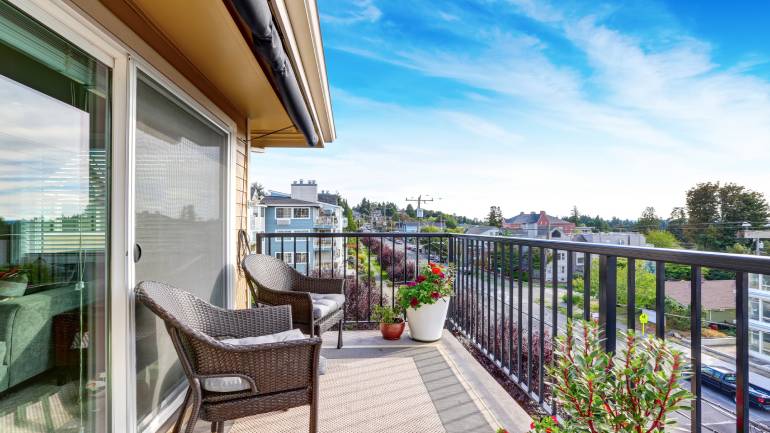
Subletting your HDB flat isn’t unusual in Singapore, after all, it’s a great way to earn passive income from your spare room or flat. However, like everything else that’s typical in Singapore, there are rules for HDB subletting.
Remember that HDB flats are, first and foremost, meant to be affordable housing, and not for investment. Therefore, these rules are in place to ensure that people have a roof over their heads and not for landlords to generate a quick buck.
So, before you decide to sublet your room/flat and land yourself in hot soup, we’ve highlighted 11 important HDB rental rules you should know about subletting your HDB flat.
HDB Rental Rules to Watch Out For:
- Subletting during MOP
- Locking a room on pretense of occupying it
- Tenants impersonating as owners
- Unregistered tenants
- Only Singaporeans can rent out the entire HDB
- Not adhering to the Non-Citizen quota
- Short-term rentals
- Renting to the same tenant beyond the subletting period
- Exceeding the occupancy cap
- Pushing all responsibilities to the tenant
- Not being aware of tenant’s illegal or inappropriate activities in the property
1. Subletting Your Flat During the MOP
HDB owners would be familiar with the Minimum Occupation Period (MOP), which is basically the period of time a landlord must occupy an HDB flat before selling/renting it.
The MOP for an HDB flat is 5 years in most cases. Obviously, this means you can’t rent out or sublet your room/unit if you have not fulfilled your MOP, so it’s important to be mindful of this.
2. Locking Up a Room and Pretending to Occupy It
Since flat owners can’t rent out their flats during the MOP, some flat owners have sneakily tried to get around this rule by locking up one of the bedrooms, so that they can claim that they “occupy” the room as they secretly rent out the rest of the flat.
Remember, according to the rules, the owners will have to live together with the tenants during the subletting period. Otherwise, HDB can revoke your subletting registration and it will be considered that you are renting out the entire HDB flat without HDB’s approval.
If HDB finds out that you don’t actually reside at the HDB flat, the authorities can take action against you under the Housing & Development Act. HDB will then deem that you’re renting out the entire unit, and the registration for subletting your HDB’s bedrooms will be revoked immediately.
3. Getting Your Tenants to Impersonate You
If you thought pretending to live at your flat was bad, some HDB flat owners go a step further.
Some get their tenants to masquerade as the actual owners of the flat in an attempt to fool their neighbours, and even the authorities if they happen to drop by to conduct inspections.
It goes without saying that this is worse than just locking up a room and pretending you live there. If you get caught, you will most definitely get into serious trouble.
4. Not Registering Your Tenants
If getting tenants to pretend that they’re the flat owners isn’t on the table, yet another way that some HDB flat owners try to get around the rules and regulations is by not registering their tenants at all.
Obviously, this is very much illegal – all tenants have to be residing in Singapore legally, and have to at least hold a valid student pass, work permit, employment pass, S Pass, Dependent Pass, or Long-Term Social Visit Passes.
Adding/Registering a Tenant
All inclusion of tenants need to go through HDB’s approval. There will be an administrative fee of $20 per application.
All applications can be done via the My HDBPage or Mobile@HDB.
5. Only Singaporeans Can Rent Out Their HDB Flat
Apart from the MOP rule, citizenship is also a factor. Only Singaporean citizens are allowed to rent out HDB flats.
However, both Singaporeans and Singapore Permanent Residents (SPRs) can sublet their spare bedrooms, provided that the HDB flat is 3-bedroom or larger, and you have obtained approval from HDB to sublet it out.
6. Not Adhering to the Non-Citizen Quota for Renters
Apart from Malaysians, the Non-Citizen Quota will apply if you’re renting your HDB flat to a non-Malaysian, non-citizen (Singapore PRs or foreigners). This quota is 8% for the neighbourhood, and 11% for the block. If the quota is reached, only Malaysians and Singaporeans can rent in that neighbourhood/block.
Check out the Non-Citizen quota for your block on HDB’s site
Remember that you’ll need to get HDB’s prior approval before you can rent out the entire flat.
7. Renting Out Your Unit on a Short-Term Basis

Under the HDB subletting rules, your flat must be rented out for a minimum of 6 months
If you thought of converting your flat to an Airbnb and making money off of that, you’re out of luck.
In Singapore, short-term leases aren’t allowed under HDB regulations. This is because such arrangements may disrupt the living environment, as well as pose safety concerns for everyone else living in the area.
For HDB flat rentals, your tenants will need to rent your flat for a minimum period of 6 months per application.
8. Renting Out Your Unit to the Same Tenant for as Long as You Want
Conversely, you can’t rent the flat out to the same tenant forever, either.
HDB flats are considered public housing, so very long-term rentals aren’t allowed. The maximum HDB subletting period is 3 years per application if the tenants are Singaporeans or Malaysians.
For non-Malaysian, non-citizen tenants, the maximum is 2 years. Non-citizens in this case would refer to Singapore PRs and foreigners.
Each time you rent out your flat or renew the application, you’ll need to re-apply for approval.
9. Ignoring the HDB Maximum Occupancy Cap
In 2019, HDB discovered that a flat in Block 403, Pandan Gardens was apparently home to 24 tenants, which was four times more than the allowed amount for this unit size.
Each of the flat’s 3 bedrooms was shared by at least 6 people, with up to 8 people living in one. The living room had been illegally partitioned into 2 rooms and rented out to 2 different couples.
These are claustrophobic and nightmarish conditions, and one can see why HDB has imposed regulations on how many people can live in a flat.
Prior to 1st May 2018, the maximum occupancy limit for the 4-bedroom, 5-bedroom, and executive units was 9 people. After 1st May 2018, the numbers were capped to a maximum of 6 people for 3-room units and above. The maximum number of occupants is inclusive of the flat owners and tenants.
Apart from this, only the actual number of designated bedrooms can be rented out. If you have a 4-room flat, you can only rent out the 3 bedrooms, and not partition your living room and rent it out as a bedroom.
Here’s a list of the maximum number of occupants allowed for different HDB flat types.
|
Flat type |
Total number of tenants allowed |
|
1-room |
4 |
|
2-room |
4 |
|
3-room |
6 |
|
4-room |
6 |
|
5-room |
6 |
|
Executive |
6 |
10. Pushing All Responsibility to Your Tenant
If you’re rented out an entire flat, it’s tempting to fall into the mindset that since the flat is technically in the care of your tenant, you’re not accountable for whatever shenanigans they get up to.
However, whatever your tenants do will eventually fall back on you, since you’re the one who actually owns the flat. The authorities will hold you responsible if your tenants break any rules.
11. Not Being Aware of Your Tenant’s Illegal or Inappropriate Activity in Your Property
This is related to the previous point. You need to ensure your tenants aren’t doing anything illegal, such as subletting rooms out to others without your knowledge, or inconveniencing the neighbours. As a landlord, it’s advisable to make regular visits to ensure that everything is in order.
This is where the Tenancy Agreement comes in. The Tenancy Agreement signed between you and your tenant should clearly stipulate any kind of activity or behavior your tenant should avoid. For example, it could be about not creating excessive noise after 10pm, or not having more than two guests over after that time.

Property Guides
Should any disputes arise between you and your tenant, the Small Claims Tribunal in Singapore can help.

Renting
Want to ensure your HDB flat doesn’t get ruined by tenants? Learn more here.
Subletting your HDB flats is a good way to earn some side income, but to ensure you adhere to the rules so you don’t get into trouble with HDB!
HDB does not take the flouting of their rental regulations lightly. The act of committing them can get in you in some very hot water with consequences such as HDB imposing heavy fines on you, and/or repossessing your flat.
More FAQs Related to HDB Subletting/Rental:
What is the minimum rental period for HDB?
6 months. The maximum rental period is 3 years.
Can I rent out my whole HDB?
Only if you are a Singapore citizen, and if you and your tenants meet the eligibility conditions.
How many persons can stay in a HDB flat?
Four persons in a 1-room and 2-room flat, six persons in a 3-room and 4-room flat.
Is rental income taxable Singapore?
Yes, rental income is taxable in Singapore.

Renting
Want to know more about the dos and don’ts for renting out your property in Singapore, read this guide here!

Renting
You can also read this guide here to Singapore property rental for both tenants and landlords.

Find Property
Curious about what other properties are out there for rent? Take a look at the latest listings here.

Property Guides
Click HERE to get more interesting guides like this, or check out PropertyGuru.

